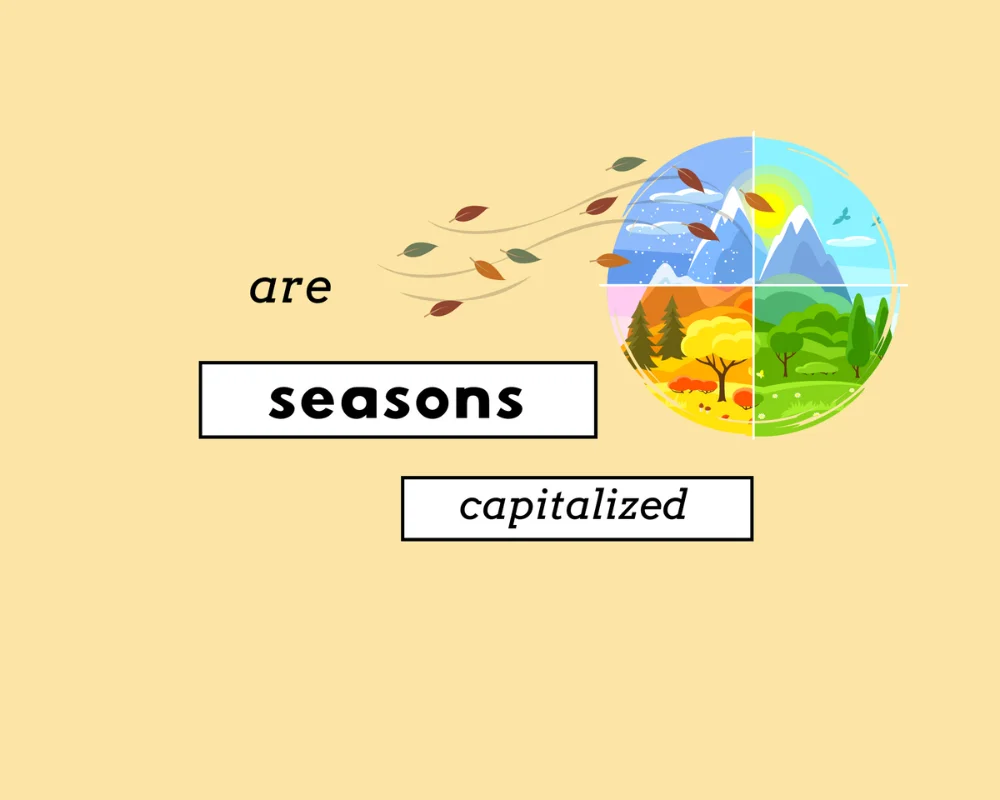Contents
Toggle
Are the seasons capitalized?
Are seasons capitalized? The four seasons should be written in lowercase, unless they’re part of a proper noun. If the distinction between common vs proper nouns is unfamiliar, chances are you may need to flex your grammar muscles. Stick around … you may learn something.
When to capitalize the names of seasons?
When it comes to the English language, exceptions are standard practice. The cases when the seasons use capitals vs lowercase letters are still fairly easy to distinguish between, so long as you know your common and proper nouns.. Otherwise, the standard capitalization rules apply.
The exceptions are when the name of a season starts a sentence, or when it’s included as part of a proper noun. In either of those cases, capitalize the first letter of the name of the season.
Common nouns vs proper nouns
Pick a random thing or object (whatever comes to mind the quickest,) and ask yourself, ‘is there only one of this thing, or are many types of this kind of thing?’ Common nouns names general types or categories: a computer, a restaurant, a leaf, and a lamp. These objects are familiar, common words that we use in conversation: they can also apply to any object that falls under its category.
Tables, lamps, fish, streets, and people are all terms for broad categories of nouns, objects, ideas and so on. These are words that we use, but they can refer to any one of its kind. You might say, ‘Hey, I’m going to the mountains.’ And I’d reply, ‘Which mountains?’ ‘Mount Everest.’ Why do we capitalize Mount Everest and not mountains, period? Mount Everest is a proper noun: it refers to the name of a specific mountain and place in the world. Mountains can refer to any mountain, or simply the idea of a mountain.
We capitalize ‘proper nouns’ because they are particular. They specify which particular thing is mentioned; and, in doing so, distinguish that thing from the rest of every thing in existence (which is a pretty powerful linguistic tool, when you think about it.) They name particular people (Evan Peters), places (Mt. Everest), things, objects or ideas (Existentialism); and that’s why they get a capital letter: they tell us which particular thing or person is referenced or being discussed. Common nouns are left in lowercase since they’re general and non-specific.
See the chart showing the difference:

When to capitalize the names of seasons
The seasons should be capitalized when they form part of a proper noun, as in a title of a book or movie: John Steinbeck’s The Winter of Our Discontent, is a fine example. Otherwise, capitalize the names of seasons when they are used at the beginning of a sentence or quote.
Origin of spring/summer/winter/fall
Spring: Old English springan “to leap, burst forth, fly up; spread, grow.”
Summer: “Hot season of the year,” Old English, sumor.
Winter: Old English winter “the fourth and coldest season of the year, winter,”
Fall/Autumn: Fall became popularized in the 1660s, and is mainly used in American English. Autumn is the more formal term, which “comes from the French autompne, from the Latin autumnus, whose deeper roots are obscure.”
Rome wasn’t built in a day; and likewise, grammar cannot be learned overnight. Take some time to keep learning, improve your writing, and maybe have some fun while you’re at it! Read up on GFlex’s latest and greatest:
What’s the difference between they’re, their, and there?










